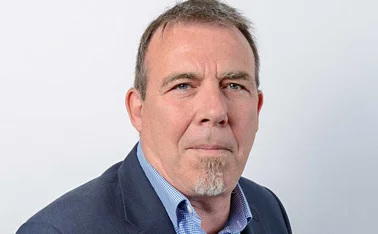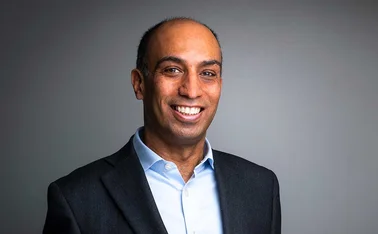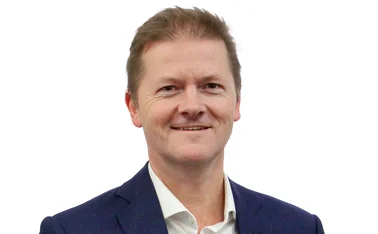
Back to business
Janice Deakin, corporate sales director at Aviva UK general insurance, is busy explaining to brokers Aviva's strategy as it seeks to push up rates and keep commissions under control, writes Andrew Tjaardstra.
It is already a dramatic year for Aviva. The UK's largest insurer announced results for the 2008 financial year that showed it diving into the red at group level while it pushed on with the largest financial services rebranding in history; all the while, the insurer has been undertaking a concerted effort to increase rates and push down commission - to mixed reactions from brokers. At the same time, its efficiency drive continued, producing savings of hundreds of millions of pounds in costs through office closures and job cuts both here and in India. Although controversial, a recovery to profit in the first half of 2009 has helped to justify this approach.
The defining moment of the year has to be that rebrand. Corporate sales director Janice Deakin comments: "When we first announced it, the London market embraced it straightaway as a logical next step but there were doubts in the regions about giving up 200 years of heritage. We told our brokers well in advance and maintained a consistent dialogue so they were able to talk to their customers. The advertising was so effective that any negativity went away. With the feedback we now have, I don't think we could have wished to be in a better place with our brokers, although some still don't agree with it. At worst, it is a non-issue while at best a really positive story. Changing the brand on 1 June was the start, not the end." She says that over 70% of brokers are positive about the name change, compared to around 30% at the beginning of the rebrand.
The next phase of the marketing campaign launches in October. With the help of comedian Paul Whitehouse, Aviva is targeting commercial customers to use a local broker (see Focus, pp.25-30). This, in the context of a sedate broker marketing climate, is a radical step. Deakin says: "We want to put the message across: talk to your broker about Aviva. When we said we weren't going to sell commercial direct, there was a response from brokers saying 'not yet' but saying it on television is a massive step and many didn't think we would go ahead with this campaign. I can't think of any other insurer that has done this." Perhaps all its advertising activity, featuring Bruce Willis and Elle MacPherson, has been inspiring Aon with its decision to sponsor Manchester United from next year. Deakin replies: "I was surprised but over time it will turn them into a household name. My nephew, a Red Devils fan, was asking what they do. Most of the investment on television is for personal [insurances] but there is a whole world outside of personal motor."
Rates
Aviva has been the talk of the broking community for more than a name change. Brokers have been complaining of a double whammy of rate increases and commission declines; Aviva announced a £500m reduction in general insurance premium in the first half of the year, reducing its distribution ratio to 34% in the first half compared to 40% in 2007. It has been well documented that relationships with the likes of Primary, Saga and Towergate's underwriting zones including Fusion have been ended; there was also a well publicised spat with Chris Giles, chief executive officer at Giles Insurance. In a move that would have been unthinkable only two years ago, Peter Cullum said that his relationship with Zurich could be larger for the underwriting side by the end of the year, though Towergate remains a significant partner for Aviva. UK chief executive officer Igal Mayer has been behind much of the change in strategy and he appears relatively calm about the way things are going, saying that around 90% of the drop in premium was part of a deliberate strategy.
Deakin defends Aviva's strategy and insists that it is on the right track: "It is the easiest thing in the world to write loads of business but it is not right for the customer, us or the broker in the long term. Do I blame them [the consolidators] for having their business model? No - it is a fact of life. All we can do is be clear and fair on the terms we will do business. If the competition can offer five points more [commission] then fine, it's not personal. We made great progress in the first half of this year although exiting business has made it a tough first half."
Deakin continues: "Having said that, I can have tough conversations with larger players and still have great relationships with them. Business is business." She cites her company's relationship with Jelf as particularly strong, though conversely the broker's share price has struggled: Aviva has a 5% investment in it.
Deakin admits that the insurer pushed hard on rates though it was not followed by its competitors; many brokers felt forced down a route with little room for negotiation. Deakin remarks: "We accept that commercial customers are facing tough times, making this [putting up rates] harder. When brokers told us their concerns we listened but we are in the second year of increases, which not many of our competitors can say. We have given our brokers more flexibility on rates, however, we aren't prepared to lead and let our competitors have an easy life. Many say it is up to the market leader but that is only true to a certain extent and we need the competition to pick up the gauntlet as well."
It appears to have become a game of cat and mouse for insurers, especially as new players enter the market looking for opportunities. Some larger players cannot resist the temptation of winning business by undercutting their fierce competitors.
Deakin expands on some of the difficulties: "We have been putting up rates for two years but in the market there are still the differentials between new business and existing business. We kid ourselves when new business is cheap and this doesn't help the market move. It is still too cheap. Ours is only one or two points differential and all the insurers say the same but somebody is doing it. There are loads of companies playing the market - including the smaller and periphery insurers."
Offerings
One of the key factors in the lead up to the rebrand for the Aviva management team was to make sure there were tangible differences in the way it conducted business with its brokers 'post-Aviva day'. There has been wholesale change at Aviva, with its Fast Trade service for small commercial insurance opening to brokers, promising to deliver quotes in just two clicks. The service was created with London-based software house Acturis in six months and it is yet another sign that imarket has failed to capture the imagination of brokers. Deakin reflects: "This is a market issue. If you look at the history of imarket, it has never been cracked."
She continues: "We want all our packaged small business to trade through Fast Trade - about 15% of all of our commercial business. There will be seven products: the first is property owners." Will there be opportunities for brokers to switch the information to other insurers without re-keying, the whole point of imarket? According to Deakin, this feature is under construction and will be available soon. She says: "We want one system and this is our ideal but we recognise that there have been a few false starts." Aviva has made clear its strategy through its actions, for example deciding not to join Towergate's latest electronic placement commercial portal, PowerPlace.
Aviva is also determined to give its brokers the same quotes and options as its direct arm in personal lines, an area often ignored by insurers because the appetite to play direct or via aggregators in this market is still strong. Although this market has been transformed over the last two decades by the likes of Direct Line and its rival direct players, the broker market still controls around 30% of the household market (see Market Watch, pp.36-38). To tap this market further, Aviva has launched Personal Best, an online personal offering for brokers launched in July. Deakin expands: "We needed to refresh our personal lines products for brokers with Personal Best; we want them to access the products we sell direct. There is a cost of acquisition either way and there are sometimes differentials that need to be reflected in the price. The core products will be the same but there are add-ons available."
Deakin says: "People who buy personal lines still go to brokers. Customers choose to go to their brokers for personal lines and will take their advice because they trust their broker and they know they will be looked after. The industry assumed five or ten years ago that they wouldn't go back to brokers but they do; even those that shop around on aggregators go back to their broker and ask 'can you match that'?"
Networked
One of the highest-profile changes in strategy has been Aviva's creation of two networks for its independent brokers. The insurer created Club 110 - for regional brokers with large accounts with the insurer. It was also responsible for creating Broker Independence Group - aimed at those with Aviva accounts of under £800,000 gross written premium and designed to tap into regional independent brokers to foster closer relations.
Deakin says: "It is fundamental for us to grow our relationships with smaller brokers and to give them options to stay independent. Club 110 members were looking to join networks and something more: we have created a community. We now have a Facebook site for BIG on which people can share their concerns in a group environment."
Its website promises "more support", "more products" (such as Comfort Motorhome), "more advice" (concerning human resources, marketing and training) and "more contact" - meaning dedicated account managers.
Loans
The planned-for support for brokers doesn't stop there. Aviva is also providing loans to brokers for acquisitions and management buyouts, something that Hastings-based Green Campbell Fisk has benefited from - doubling the size of its business this year. Deakin refutes the idea that this is another contradictory approach from an insurer saying it wants to protect the independence of brokers: "If a broker is looking to sell, I would prefer they join forces with another 110 broker than sell out somewhere else." Is there a danger that medium-size brokers that are growing would then start raising their commissions after acquisitions? Deakin replies: "If an individual is looking for an exit, they will find it. I would like to give them lots of options and we are looking at our preferred route for them. If we lent a load of money to one then they would [become dominant] - but we wouldn't do that."
There is plenty more money available. Deakin continues: "Despite the market, we haven't done anywhere near the number of loans we thought we would. When we went through our strategy three-and-a-half years ago, we were looking to put brokers in a stronger position and not ask 'how can we exert the most influence over this?' Some of our actions in the past accelerated some of the trends in the market."
In her previous interview with PB (July 2008, pp.26-29), Deakin said that the measure of success is that brokers should not need to chase them because it had set up seven Centres of Excellence across the UK. She is happy with their progress but recognises there is more to do; she cites feedback from brokers that the claims process is improving and that she is rarely seeing any negative messages in this area.
There will be many twists and turns in the coming years as the market comes to terms with the worst recession in a generation. Deakin is likely to be grateful to now be able to concentrate fully on winning business, no longer having to constantly talk about the reasoning behind one of the most sensational and expensive rebrands in history. Independent broking is alive and well and Aviva is here to promote that, yet its broker relationships remain complicated as it tries to move the market away once and for all from its protracted soft state.
Only users who have a paid subscription or are part of a corporate subscription are able to print or copy content.
To access these options, along with all other subscription benefits, please contact info@insuranceage.co.uk.
You are currently unable to print this content. Please contact info@insuranceage.co.uk to find out more.
You are currently unable to copy this content. Please contact info@insuranceage.co.uk to find out more.
Copyright Infopro Digital Limited. All rights reserved.
As outlined in our terms and conditions, https://www.infopro-digital.com/terms-and-conditions/subscriptions/ (point 2.4), printing is limited to a single copy.
If you would like to purchase additional rights please email info@insuranceage.co.uk
Copyright Infopro Digital Limited. All rights reserved.
You may share this content using our article tools. As outlined in our terms and conditions, https://www.infopro-digital.com/terms-and-conditions/subscriptions/ (clause 2.4), an Authorised User may only make one copy of the materials for their own personal use. You must also comply with the restrictions in clause 2.5.
If you would like to purchase additional rights please email info@insuranceage.co.uk








